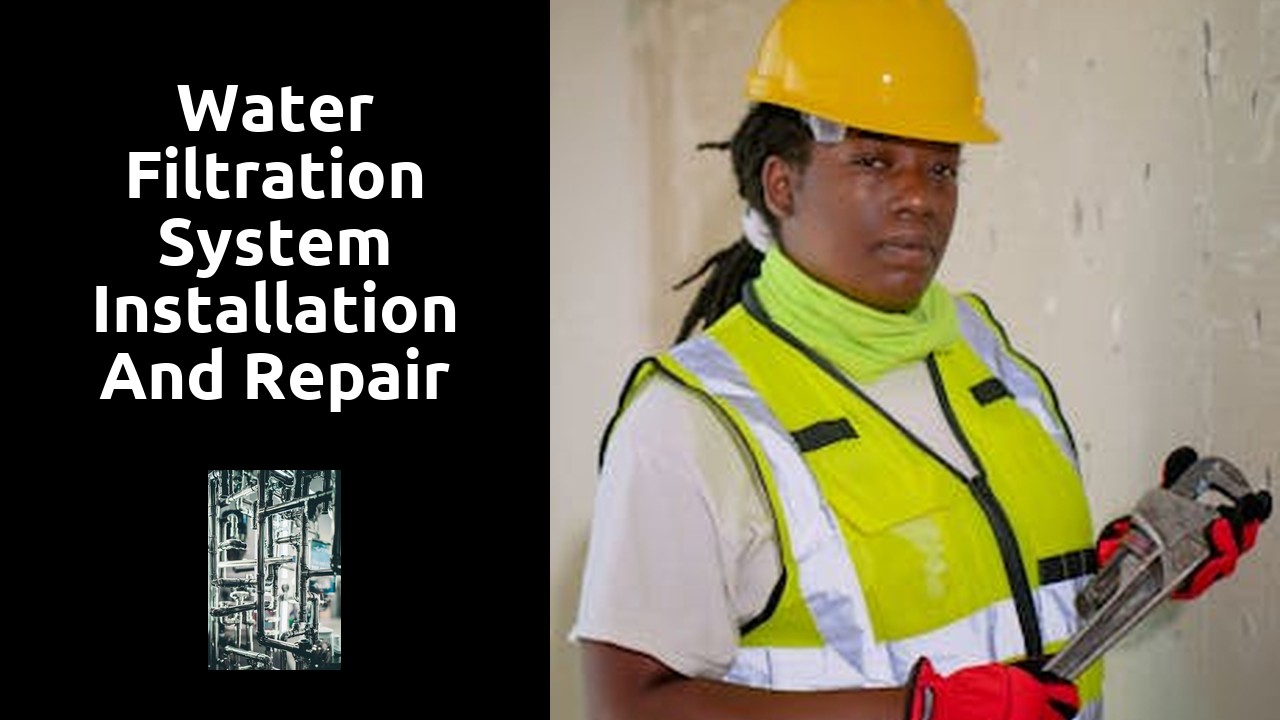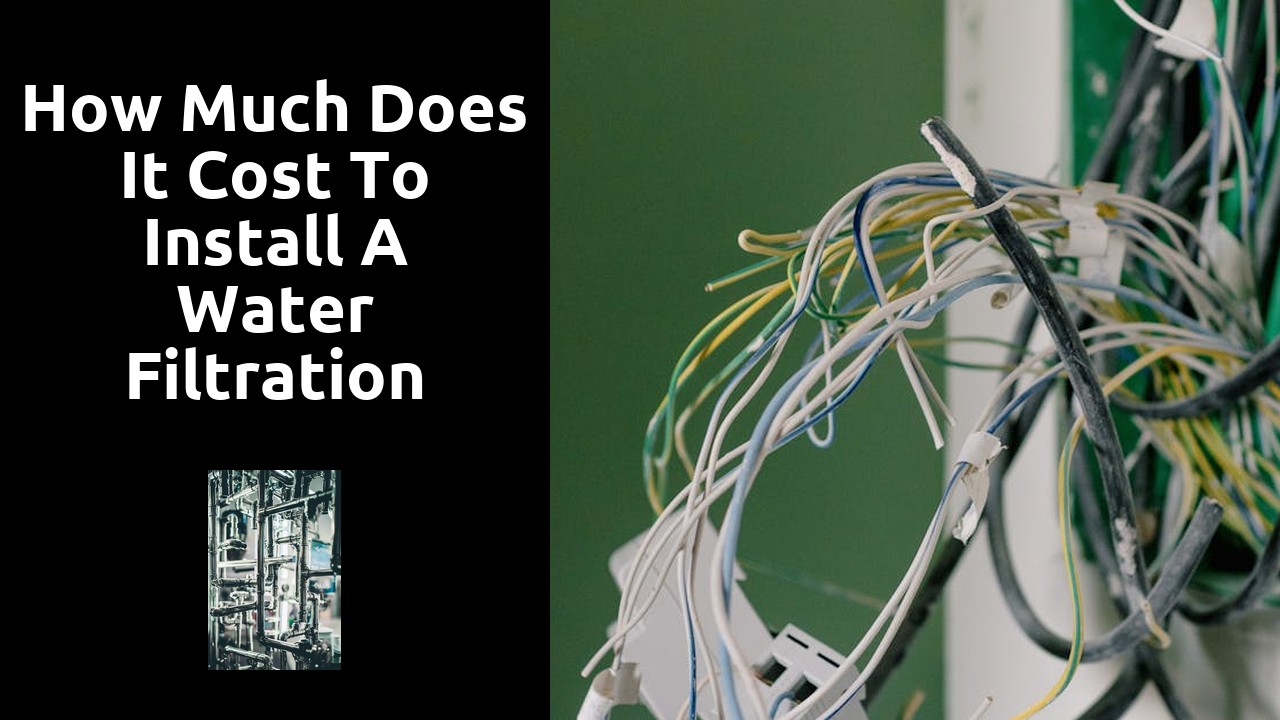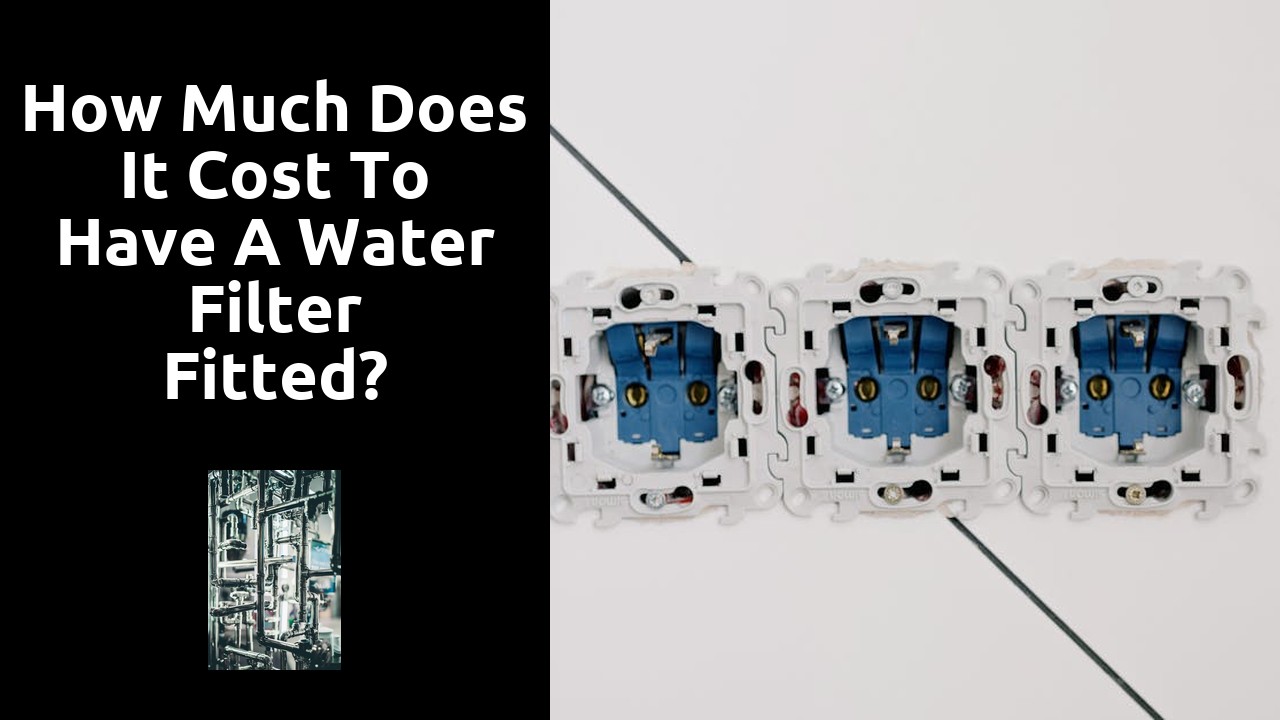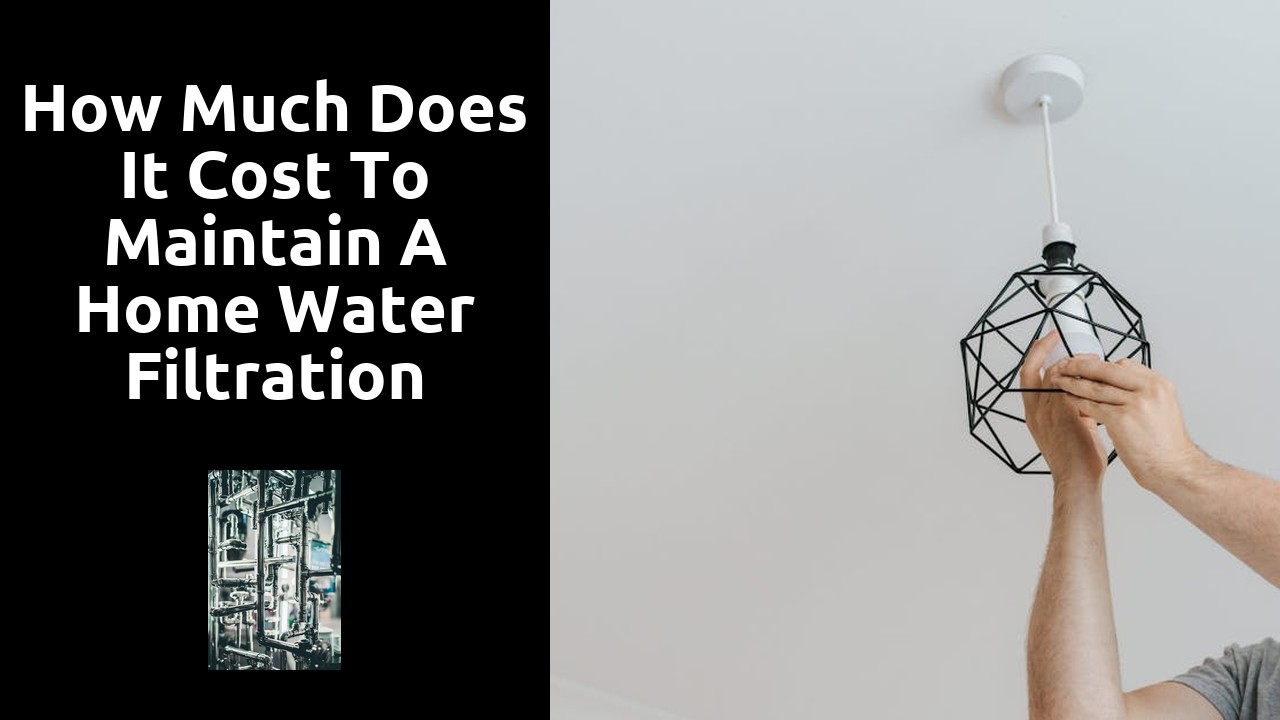
Water filtration system installation and repair
Velvet Plumbing offers top-notch water filtration system installation and repair services to ensure that households have clean and safe drinking water. Our team of experienced technicians specializes in installing and repairing a variety of water filtration systems, including reverse osmosis systems, whole-house filters, and under-the-sink filters. We use high-quality materials and advanced technology to ensure that your water filtration system is functioning efficiently and effectively. Whether you need a new system installed or repairs on an existing one, Velvet Plumbing is dedicated to providing exceptional service and ensuring that your water is free from contaminants and impurities. Trust Velvet Plumbing for all your water filtration system needs.
The Role of Water Quality Testing in System Maintenance
Water quality testing plays a crucial role in the ongoing maintenance of water filtration systems. By regularly testing the quality of the water being filtered, homeowners can ensure that their system is effectively removing contaminants and providing clean, safe water for consumption and daily use. Testing the water quality also allows for early detection of any issues or malfunctions within the filtration system, preventing any potential health risks associated with contaminated water.
Moreover, conducting water quality testing helps in optimizing the performance of the filtration system. By understanding the specific contaminants present in the water and their levels, homeowners can adjust their filtration system accordingly to ensure optimal efficiency. This proactive approach not only enhances the lifespan of the water filtration system but also ensures that it continues to deliver high-quality, purified water for household needs.
Identifying Contaminants and Water Purity Levels
To maintain a healthy water supply, it is essential to identify potential contaminants and assess the purity levels of the water. Contaminants can come from various sources such as industrial discharge, agricultural run-off, or even aging infrastructure. Understanding the specific contaminants present in the water is crucial for selecting the most effective water filtration system tailored to address those impurities. Water testing can reveal important details about the composition of the water, including the presence of heavy metals, bacteria, pesticides, or other harmful substances that can compromise water quality.
Testing water for purity levels involves analyzing the concentration of minerals, chemicals, and other substances that could impact the safety and taste of the water. By conducting regular water quality tests, homeowners and businesses can proactively identify any deviations from safe drinking water standards and take appropriate measures to address them. High levels of contaminants can not only affect the taste and odor of the water but also pose serious health risks if consumed over an extended period. By staying informed about the contaminants in the water supply, individuals can make informed decisions about the type of filtration system needed to ensure clean and safe drinking water.
Understanding the Different Types of Water Filtration Systems
Various types of water filtration systems are available to cater to different needs and preferences. One common type is the carbon filter system, which effectively removes impurities by absorbing contaminants onto the surface of carbon filters. These systems are known for their cost-effectiveness and ability to enhance the taste and odor of water.
Another popular option is the reverse osmosis system, which utilizes a semipermeable membrane to filter out impurities from water. While these systems are efficient in removing a wide range of contaminants, they can be wasteful in terms of water usage. It's essential to consider the pros and cons of each filtration system to determine the most suitable option for your specific requirements.
Pros and Cons of Reverse Osmosis Systems
Reverse osmosis systems are highly effective at removing a wide range of contaminants from water, providing you with clean and safe drinking water that tastes great. These systems use a series of membranes to filter out impurities such as lead, chlorine, and bacteria, ensuring that your water is of the highest quality possible. Additionally, reverse osmosis systems are relatively low maintenance compared to other types of water filtration systems, making them a convenient choice for many homeowners.
On the other hand, one of the drawbacks of reverse osmosis systems is that they can be wasteful in terms of water usage. These systems typically produce a significant amount of wastewater during the filtration process, which can be concerning in regions where water conservation is crucial. Additionally, some people find that the taste of reverse osmosis water is too bland or lacking in essential minerals, prompting the need for additional mineralization steps to enhance the water's taste and health benefits.
Importance of Timely Water Filtration System Repairs
Timely repairs to water filtration systems are crucial in maintaining the quality of water being supplied to homes and businesses. Neglecting repairs can lead to decreased efficiency in filtering out contaminants, potentially exposing consumers to unsafe drinking water. By promptly addressing any issues that arise, water filtration systems can continue to function optimally, providing clean and safe water for daily use.
Furthermore, timely repairs help prevent minor problems from escalating into larger, more costly issues. Regular maintenance and immediate repairs can extend the lifespan of water filtration systems, saving both time and money in the long run. It is important for system owners to be proactive in monitoring the performance of their filtration systems and address any malfunctions promptly to ensure continuous access to clean and healthy water.
Preventing Further Contamination and Health Risks
To safeguard against further contamination and mitigate health risks, it is crucial to promptly address any issues with your water filtration system. Delaying repairs or ignoring maintenance can lead to a decline in water quality, exposing you and your loved ones to harmful contaminants. By proactively maintaining your system and promptly repairing any malfunctions, you can ensure that your water remains safe for consumption and daily use.
Regularly scheduled maintenance, such as filter replacements and system checks, can help prevent the buildup of impurities and maintain the efficiency of your water filtration system. Keeping an eye out for any signs of leaks, unusual noises, or changes in water taste or odor can alert you to potential issues that may require immediate attention. By staying vigilant and addressing concerns promptly, you can minimize the risk of further contamination and preserve the quality of your water supply.
FAQS
Why is water quality testing important for maintaining a water filtration system?
Water quality testing is crucial as it helps identify any contaminants present in the water supply, allowing for appropriate maintenance and repairs to ensure the system functions effectively.
What are some common contaminants that water quality testing can help identify?
Water quality testing can help identify contaminants such as bacteria, lead, chlorine, pesticides, and other chemicals that may affect the purity of the water.
What are the different types of water filtration systems available for installation?
There are various types of water filtration systems available, including reverse osmosis systems, carbon filters, UV filters, and distillation systems, each with its own set of pros and cons.
What are the pros and cons of using a reverse osmosis water filtration system?
Reverse osmosis systems are effective at removing a wide range of contaminants, but they can be expensive to install and maintain, and they also produce a significant amount of wastewater.
Why is it important to promptly repair a water filtration system when an issue arises?
Timely repairs are essential to prevent further contamination of the water supply and to reduce health risks associated with consuming impure water. Regular maintenance can also prolong the lifespan of the filtration system.


